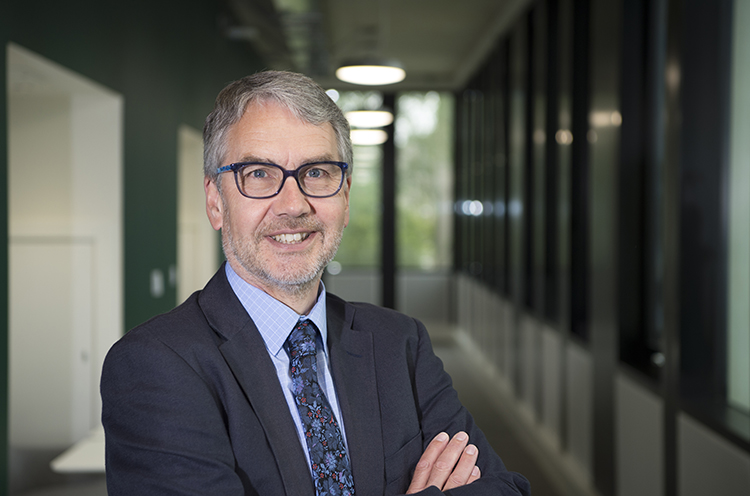Since Karen’s arrival, we have been involved in ‘refreshing’ the University’s strategy. My priority has been Medway which for several years has highlighted ‘professional, creative and practice-based education and research’. Last autumn I reviewed Medway’s strengths, weaknesses, opportunities and threats based on responses from colleagues across the University. Karen and I hosted a discussion forum in November and in December I presented the review outcomes to EG. One of the principal conclusions was that the ‘Medway narrative’ needed changing.
In February I gave a presentation at the Senior Leaders Forum Conference, entitled ‘Delivering our aspirations for Education, Research & Engagement at Medway’. Conscious that the Creative Industries are the fastest growing sector of the UK economy and that industry leaders Dovetail Games and Bose are on our doorstep, the vision I articulated was of Kent and especially Medway as the leader in creativity and innovation, excelling in the Creative Industries, Health & Wellbeing and Business on the basis of strong partnerships with industry.
There was broad agreement about the vision. The challenge was to devise a strategy to deliver it. This coincided with the need to find a sustainable successor to SMFA. The Centre for Music and Audio Technology (CMAT) had been established (its first students arrive in September) but we recognised that it must be part of something bigger. As a priority, therefore, EG asked Simon Kirchin (Dean of Humanities), Liz Moran (Director of Arts and Culture) and me to refine the Creative Industries aspect of the vision and propose an implementation strategy. With Peter Hatton (SMFA) as our Business Development Lead supported by an interdisciplinary advisory group which included industry figures, we proposed a strategy to achieve our vision of Kent leading Medway’s (the area’s) repositioning and transformation as a Creative City. The idea is that Kent will be acknowledged as the leading university for the CCI, with business, createch (the interaction of creativity and technology) and innovation embedded in our activities and our Medway campus inspiring creativity and innovation.
I’m delighted to say that EG has now endorsed the establishment of an Institute for the Creative and Cultural Industries as the direction of travel. The Institute will encompass CMAT and a new Centre for Design and Creative Industries as well as other entities. There is now a need for further consultation and discussion across the University to avoid cannibalising existing programmes and ensure maximum synergy. We aim to have new CCI programmes ready for delivery by September 2020, but getting this right is more important than being tied to artificial deadlines. Research and innovation are also a key part of the strategy. A similar initiative is underway for Health & Wellbeing. A taskforce led by Claire Peppiatt-Wildman (Head of SSES) will map and leverage Kent’s strengths in those areas and propose new activity.
So my key message is that the ‘Medway narrative’ has changed. It’s an exciting work in progress that fits well with other developments such as the Kent and Medway Medical School; KMTV; the MoU between Kent and Arts Council England (ACE), which recognises Medway’s potential to become a thriving CCI hub, expresses ACE’s keenness to work with us on the links with Health & Wellbeing and confirms our shared commitment to widen access and improve the quality of arts and culture across Kent; the AHRC Creative Clusters Programme to establish creative R&D Partnerships between universities and business, on which Liz Moran has been leading in partnership with Essex (we’ll hear soon if we’ve been successful); and Medway Council’s ambitions for Medway to become UK City of Culture 2025 and its longer-term ‘2035 Vision’.
There will be further updates from time to time. Watch this space!
Professor Nick Grief, Dean for Medway

